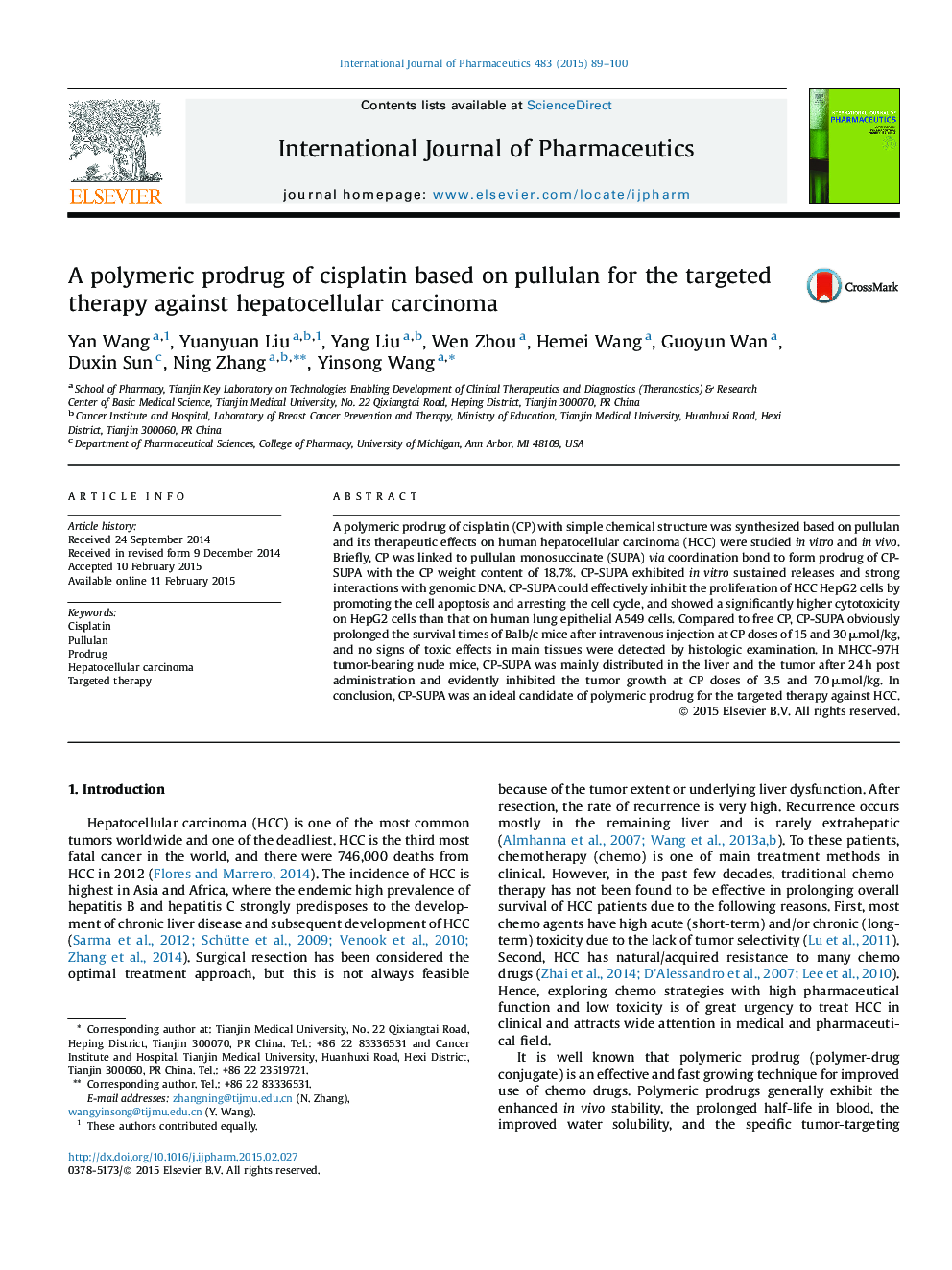| Article ID | Journal | Published Year | Pages | File Type |
|---|---|---|---|---|
| 2501484 | International Journal of Pharmaceutics | 2015 | 12 Pages |
A polymeric prodrug of cisplatin (CP) with simple chemical structure was synthesized based on pullulan and its therapeutic effects on human hepatocellular carcinoma (HCC) were studied in vitro and in vivo. Briefly, CP was linked to pullulan monosuccinate (SUPA) via coordination bond to form prodrug of CP-SUPA with the CP weight content of 18.7%. CP-SUPA exhibited in vitro sustained releases and strong interactions with genomic DNA. CP-SUPA could effectively inhibit the proliferation of HCC HepG2 cells by promoting the cell apoptosis and arresting the cell cycle, and showed a significantly higher cytotoxicity on HepG2 cells than that on human lung epithelial A549 cells. Compared to free CP, CP-SUPA obviously prolonged the survival times of Balb/c mice after intravenous injection at CP doses of 15 and 30 μmol/kg, and no signs of toxic effects in main tissues were detected by histologic examination. In MHCC-97H tumor-bearing nude mice, CP-SUPA was mainly distributed in the liver and the tumor after 24 h post administration and evidently inhibited the tumor growth at CP doses of 3.5 and 7.0 μmol/kg. In conclusion, CP-SUPA was an ideal candidate of polymeric prodrug for the targeted therapy against HCC.
Graphical abstractFigure optionsDownload full-size imageDownload high-quality image (113 K)Download as PowerPoint slide
